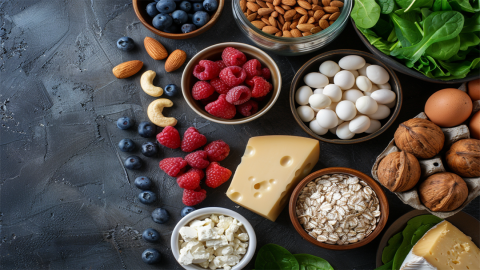What is the best diet for a woman in her seventh month of pregnancy?
Generally speaking, there is no specific food considered best to eat at seven months of pregnancy. It is recommended to consume fish, legumes and their products, leafy vegetables, dairy products, nuts, and similar foods during the seventh month of pregnancy. Detailed explanations are as follows:

1. Fish
For example, salmon is rich in high-quality protein, which can meet the fetus's protein requirements for growth and development. Additionally, salmon contains abundant unsaturated fatty acids, such as docosahexaenoic acid (DHA) and eicosapentaenoic acid (EPA), which are very important for the development of the fetal brain and eyes.
2. Legumes and Their Products
Black beans, red beans, tofu, etc., are excellent sources of plant-based protein, iron, and fiber, and can be consumed by pregnant women.
3. Leafy Vegetables
Spinach, for example, contains abundant folic acid. Although the fetal neural tube has largely completed its development by the seventh month of pregnancy, folic acid still plays a helpful role in processes such as fetal cell division.
4. Dairy Products
Milk contains high-quality protein, vitamin A, vitamin B2, and other nutrients. During the seventh month of pregnancy, the fetus's bone development requires a large amount of calcium. Drinking an appropriate amount of milk daily helps pregnant women effectively supplement calcium. Cheese is also an excellent dairy product, containing even higher levels of calcium than milk and rich in protein, making it suitable for moderate consumption by pregnant women.
5. Nuts
Walnuts, for example, are rich in protein, unsaturated fatty acids, vitamin E, and minerals such as calcium and iron. Unsaturated fatty acids aid in the development of the fetal brain and nervous system, while vitamin E has antioxidant properties that help protect cells from damage caused by free radicals.
It is recommended to maintain good lifestyle habits, such as moderate exercise, adequate rest, and avoiding smoking and alcohol consumption, all of which contribute to the health of both the pregnant woman and the fetus.









